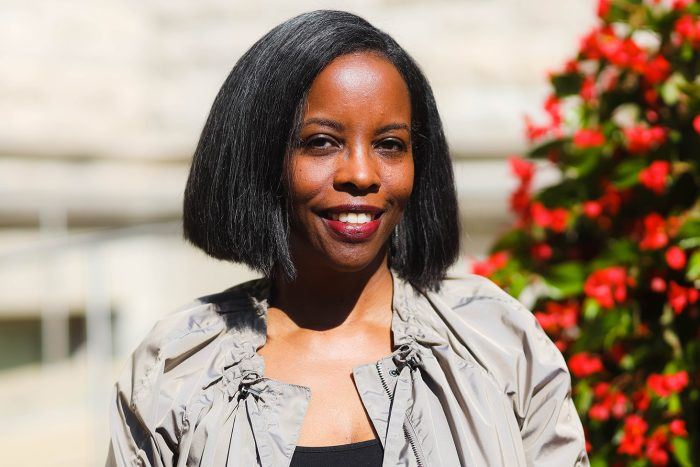How did you become involved in AJHA?
I learned about AJHA through my colleagues, Drs. Mike Conway and Gerry Lanosga in the Media School at Indiana University Bloomington and Dr. Rachel Grant at University of Florida-Gainesville. They each shared how the network fortified them professionally and personally. I learned more about the group after receiving the inaugural microgrant to support my research on the late journalist Mattie Smith Colin of The Chicago Defender. Colin covered not only food and fashion but also the tragic Emmett Till lynching in 1955. Colin’s riveting coverage of Till’s death and the return of his body from Mississippi to Chicago centered the experience of the young child’s mother, Mamie Till Bradley. The event marked a critical moment in the long Black freedom struggle.
My career and Colin’s overlapped in Chicago during the early 2000s. I had no idea of the depth of her work and life in Chicago. I appreciate greatly AJHA’s belief in the project, allowing me to further explore a Black woman’s career in American journalism history.
How do you define political and everyday life journalism? How do you conduct research on the connection between these two genres?
I define political and everyday life journalism through interdisciplinary lenses, which includes journalism studies, history, and sociology. For the political, I’m guided in my inquiry by Michael Schudson’s perspectives on journalism as a democratic tool to evoke empathy and inform citizens about policies informing their decisions. Historian Robin D.G. Kelley’s insights into the Black freedom struggle and its emancipatory possibilities help me to see the political through a different paradigm. An everyday life definition comes from several scholars, including sociologist Erving Goffman. He views everydayness as a series of interactions and experiences people engage in daily—either significant or simple.
During my daily journalism career in news and features, I observed the values placed on each within the newsroom. Based on my experiences, semi-structured interviews, and archives, I look to enlighten scholars and audiences about the connection between the two genres. Analyzing text or transcripts allows me to see how themes about race, class, gender, culture, and politics appear within one or more articles or images. Working at the intersection of both the political and everyday has uncovered nuances about journalism content, production, and its producers.
What excites you about archival work?
I’ve been exploring Black and mainstream newspapers for my Mattie Smith Colin project. I love it! I am transported back in time observing “woke culture” and Black people’s lives, filled with discussions about race, voting rights, international affairs, and fancy social affairs. The status quo stories about a historically marginalized group seen in mainstream papers are debunked. I grew up reading The Indianapolis Recorder to my grandmother and my father carried the Chicago Defender in his hometown of rural West Point, Mississippi. He said he had a pen pal through the Defender’s Bud Billiken Club. We always had Ebony and Essence magazines in the house.
Also, when I conduct archival work, I like to see the connections between people, places, and events researched. In the future, I plan to learn more about network analysis to further illustrate these relationships. Visuals tell stories.
What hobbies/interests do you have outside of academia?
I have been working on life/work balance. I love to cultivate plants, take nature walks, knit, travel, spend time with family and friends, and practice my calligraphy. My hobbies rejuvenate me and inspire my writing. My new interest is genealogy. I get excited finding and verifying facts, and then, weaving together a more comprehensive narrative of my maternal and paternal family’s American experience.
Dr. Lisa D. Lenoir is an Assistant Professor at Indiana University Bloomington.

